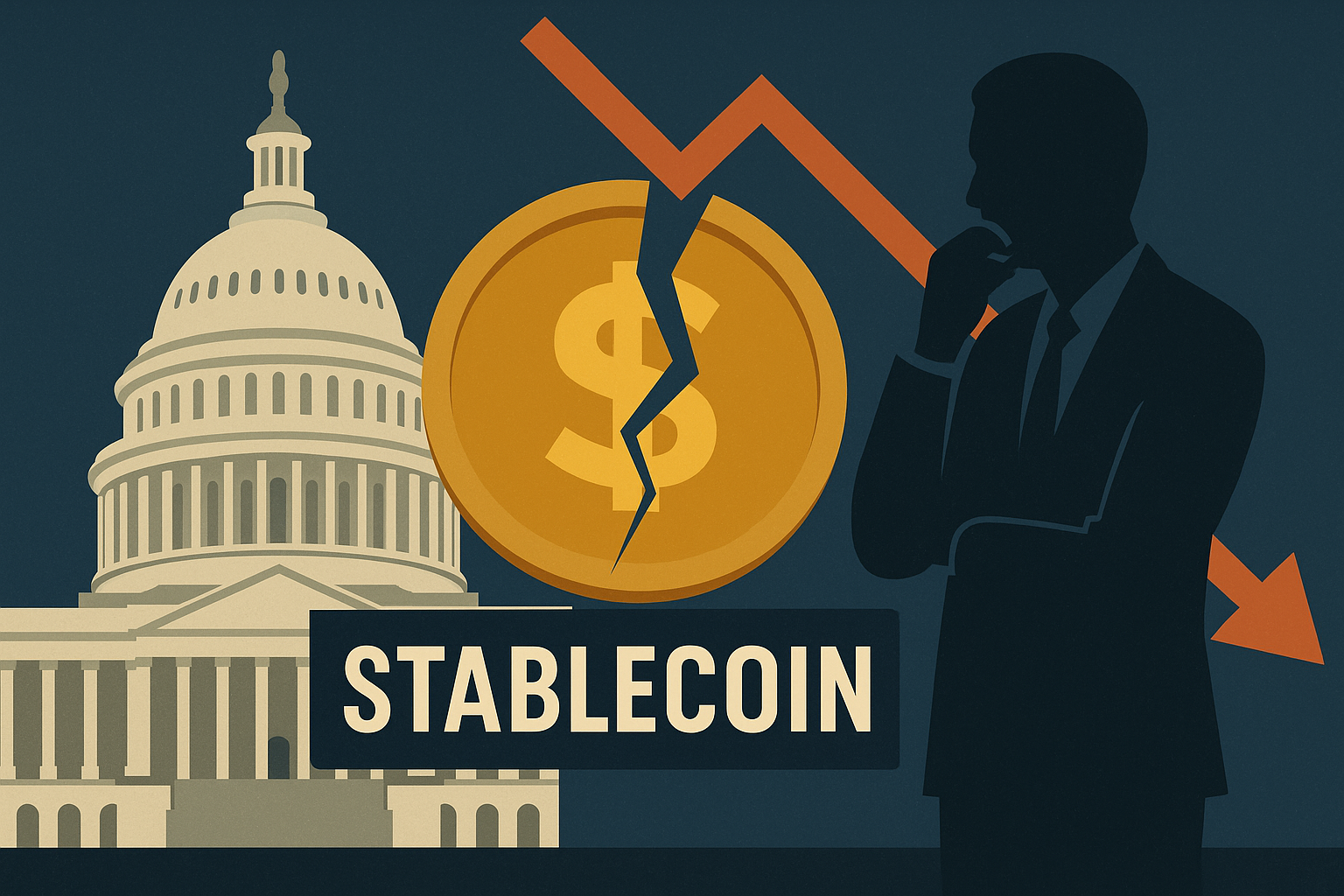ARTICLE AD BOX

1. Silvergate and Signature Bank Failures
The banking industry saw three cryptocurrency-adjacent bank failures this spring. Signature Bank and Silvergate Bank, both known for serving corporate customers in the crypto industry, collapsed in March 2023. Silicon Valley Bank (SVB), which more broadly served a large number of tech startups, also collapsed that month.
Those failures caused concerns about the stability of crypto overall. However, apart from brief losses affecting the USDC stablecoin followed by a quick recovery, the crypto sector largely adapted to the change in services.
2. SEC Sues Binance and Coinbase
In June, the U.S. Securities and Exchange Commission (SEC) sued two leading crypto exchanges: Binance and Coinbase. The SEC alleged that each company's activities and asset offerings constituted unregistered securities offerings.
Both companies are currently fighting the SEC in court. While Coinbase’s operations have remained largely unaffected, Binance.US' operations have been affected. The SEC obtained a restraining order against the firm, and strained relationships with banking partners have led Binance.US to largely suspend USD transfers.
3 Kraken Targeted By SEC Twice
Another notable exchange, Kraken, was targeted twice by the SEC in 2023. The securities regulator forced Kraken to stop providing staking services in the U.S. in February and imposed a $30 million settlement on the company. Later, in November, the SEC sued Kraken over its broader crypto exchange operations. Like Binance and Coinbase, Kraken intends to fight those charges in court.
4. BlackRock's Bitcoin ETF
BlackRock, the world’s largest asset manager, applied for a spot Bitcoin exchange-traded fund (ETF) on June 15. Since then, several other asset managers have filed for similar products. BlackRock and other applicants have also met with the SEC repeatedly. Bloomberg ETF analysts Eric Balchunas and James Seyffart believe that there is a 90% chance of a spot Bitcoin ETF approval by Jan. 10 2024.
Though no spot Bitcoin ETF has been approved to date, any successful fund of this type is expected to attract traditional and institutional investors to Bitcoin. Approval could also create demand for Bitcoin and raise its market price.
5. Grayscale Wins ETF Review
Starting in August, Grayscale won the right to have the SEC review its spot Bitcoin ETF application. Though many other pending ETFs are patterned after BlackRock's filing, Grayscale's application is somewhat different. Grayscale filed its application much earlier in October 2021, and its plans involve converting its existing Grayscale Bitcoin Fund (GBTC) to an ETF. Grayscale's court victory requires the SEC to review its application but does not guarantee approval.
6. Ripple Partially Wins Securities Case
Ripple announced in July that it had won a favorable ruling after fighting charges that the SEC initiated in December 2020. In this summer's ruling, a judge determined that sales of the XRP token by exchanges and Ripple executives, plus certain other distributions, were not securities. The SEC later dropped charges against two Ripple executives in October.
Ripple’s victory was not total: the judge found that Ripple’s institutional sales of XRP were securities. Nevertheless, Ripple’s broader victory has been held up as a success for the crypto industry and is now being cited in other court cases.
7. Twitter Rebrands to X
Twitter rebranded to X in August. That change was part of executive chair and CTO Elon Musk's plans to turn the site into an “everything app.” Though the rebrand is not directly related to cryptocurrency, Musk is moving toward adding payment features and X has obtained state payment licenses. This has led to speculation over whether the platform might gain new crypto features.
8. UK's Harsh Crypto Ad Laws
The UK’s Financial Conduct Authority (FCA) introduced strict rules around crypto advertising in October. The new rules require companies to register with the FCA and fully disclose the risk of losing money through crypto investments.
Those new rules have led certain companies to withdraw from the U.K. market. PayPal notably will not return to providing U.K. crypto services until 2024, while Binance has stopped accepting new users from the U.K. Several recognizable cryptocurrency companies have also been added to the FCA’s warning list, including the exchanges Bitfinex, Poloniex, HTX (Huobi), and KuCoin.
9. SBF of FTX Infamy Convicted
In November, former FTX CEO Sam Bankman-Fried was convicted on various charges related to fraud, money laundering, and conspiracy. His company collapsed a year earlier in November 2022 after misuse of funds between FTX and its sister company, Alameda Research, led to insolvency and bankruptcy.
Bankman-Fried will be tried on additional charges related to campaign financing and foreign bribery in early 2024 and will be sentenced at that time. Combined with FTX’s bankruptcy case, which is approaching its conclusion, Bankman-Fried’s sentence will conclude the most significant crypto case to date.
10. Binance Settles and CEO Resigns
Binance settled investigations with U.S. agencies including the Department of Justice (DOJ), the CFTC, OFAC, and FinCEN in November. Binance has agreed to pay billions of dollars in fines, engage in enhanced compliance, and submit to several years of supervision from a monitor appointed by the U.S. government.
The resolution has also dethroned Binance’s most prominent public figure: its now-former CEO Changpeng Zhao. Zhao pleaded guilty to related charges in November and faces sentencing in 2024; he stepped down from CEO at the time of those charges. Another Binance executive, Richard Teng, has replaced Zhao as CEO.
.png)
 1 year ago
10
1 year ago
10








 English (US)
English (US)